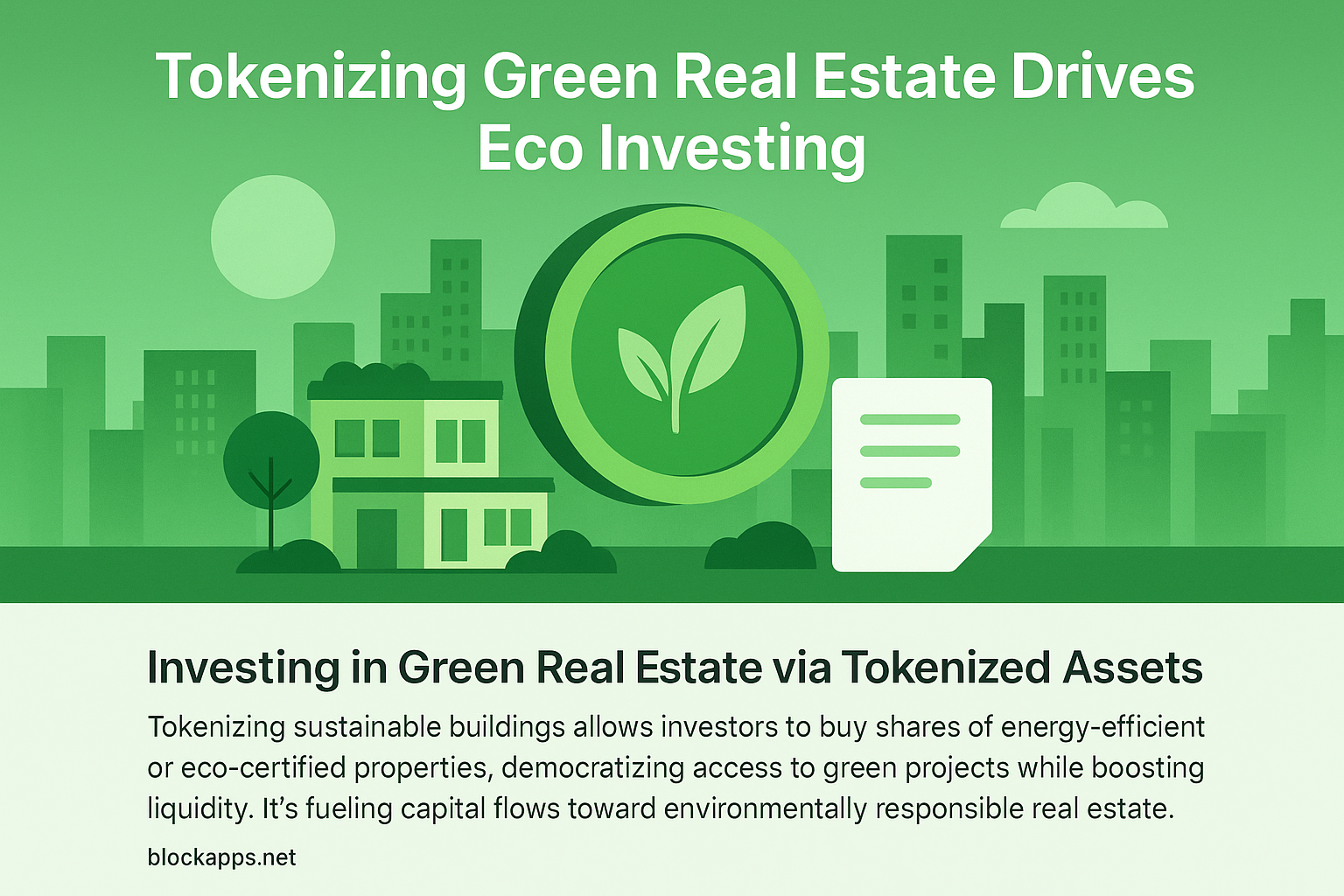As the global economy grapples with climate change and sustainability challenges, investors are seeking ways to align their portfolios with environmental values without sacrificing returns. One emerging frontier is the tokenization of green real estate—a marriage of blockchain innovation and eco-conscious property development that’s opening doors for investors worldwide.
What Is Green Real Estate Tokenization?
Green real estate refers to buildings and developments designed with energy efficiency, reduced carbon footprints, and sustainable materials at their core. Tokenization takes these physical assets and represents them as digital tokens on a blockchain, each token symbolizing fractional ownership in the property.
This means an investor no longer needs to purchase an entire building to take part in eco-driven projects. Instead, they can buy small, affordable shares—much like buying stock in a company—making green real estate more accessible than ever before.
Why It Matters for Sustainability
The tokenization process goes beyond convenience. It directly channels capital into environmentally responsible projects, accelerating the shift toward sustainable cities. Here’s why it matters:
-
Democratized Access – Tokenization lowers the barrier to entry, allowing a wider pool of investors—including those with smaller budgets—to fund green developments.
-
Boosted Liquidity – Traditional real estate is notoriously illiquid. Tokenized assets can be traded on digital marketplaces, enabling quicker exits and portfolio adjustments.
-
Transparency & Trust – Blockchain’s immutable ledger ensures that each transaction and ownership change is traceable, reducing fraud and increasing investor confidence.
-
Faster Funding Cycles – Developers can raise capital faster by tapping into a global network of investors who care about sustainability.
How It Works in Practice
Imagine a newly constructed, LEED-certified apartment building in a major city. Instead of selling the property to a single buyer, the developer issues 1 million digital tokens, each representing a fraction of the building’s value. Investors from around the world can purchase these tokens, earn rental income proportional to their holdings, and later sell their tokens on an exchange if they wish to exit the investment.
Potential Risks and Considerations
While the benefits are compelling, investors should be aware of the evolving legal and regulatory frameworks surrounding tokenized assets. Factors such as property management performance, local market conditions, and token marketplace liquidity all impact returns. Due diligence remains essential.
Driving the Future of Eco-Investing
Tokenized green real estate is more than a trend—it’s a potential catalyst for large-scale sustainable development. By connecting global capital with environmentally friendly projects, this approach can help cities transition toward lower-carbon living, while offering investors a new way to align profit with purpose.
The next decade may well see tokenized eco-projects move from niche investments to mainstream financial instruments. For those looking to make an impact—both environmentally and financially—the time to explore this space is now.




